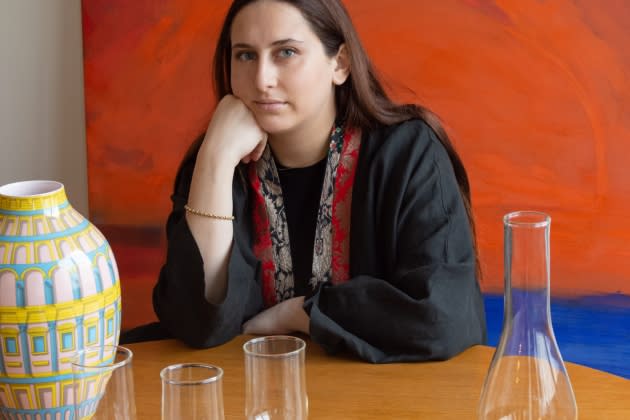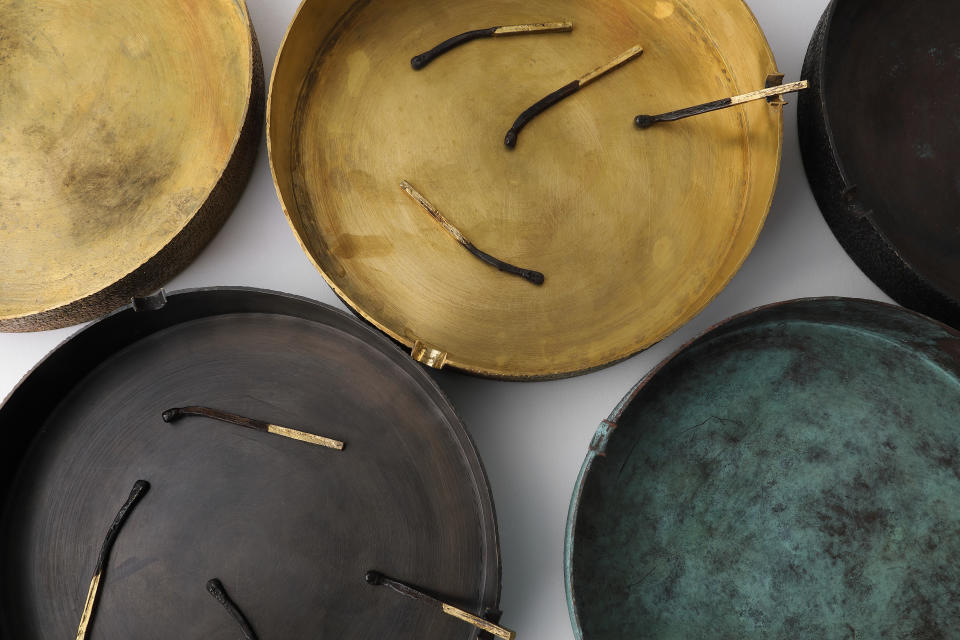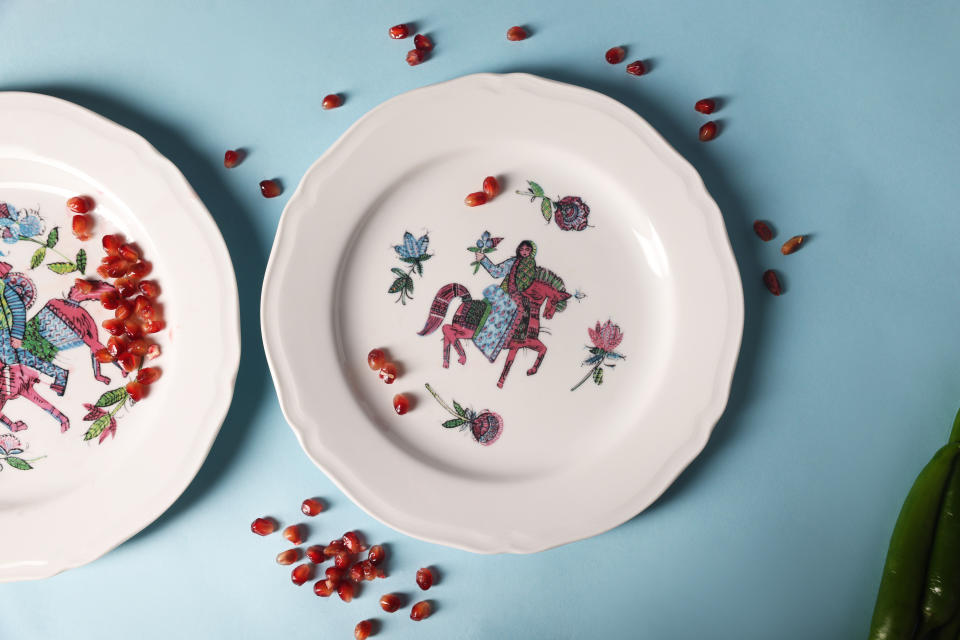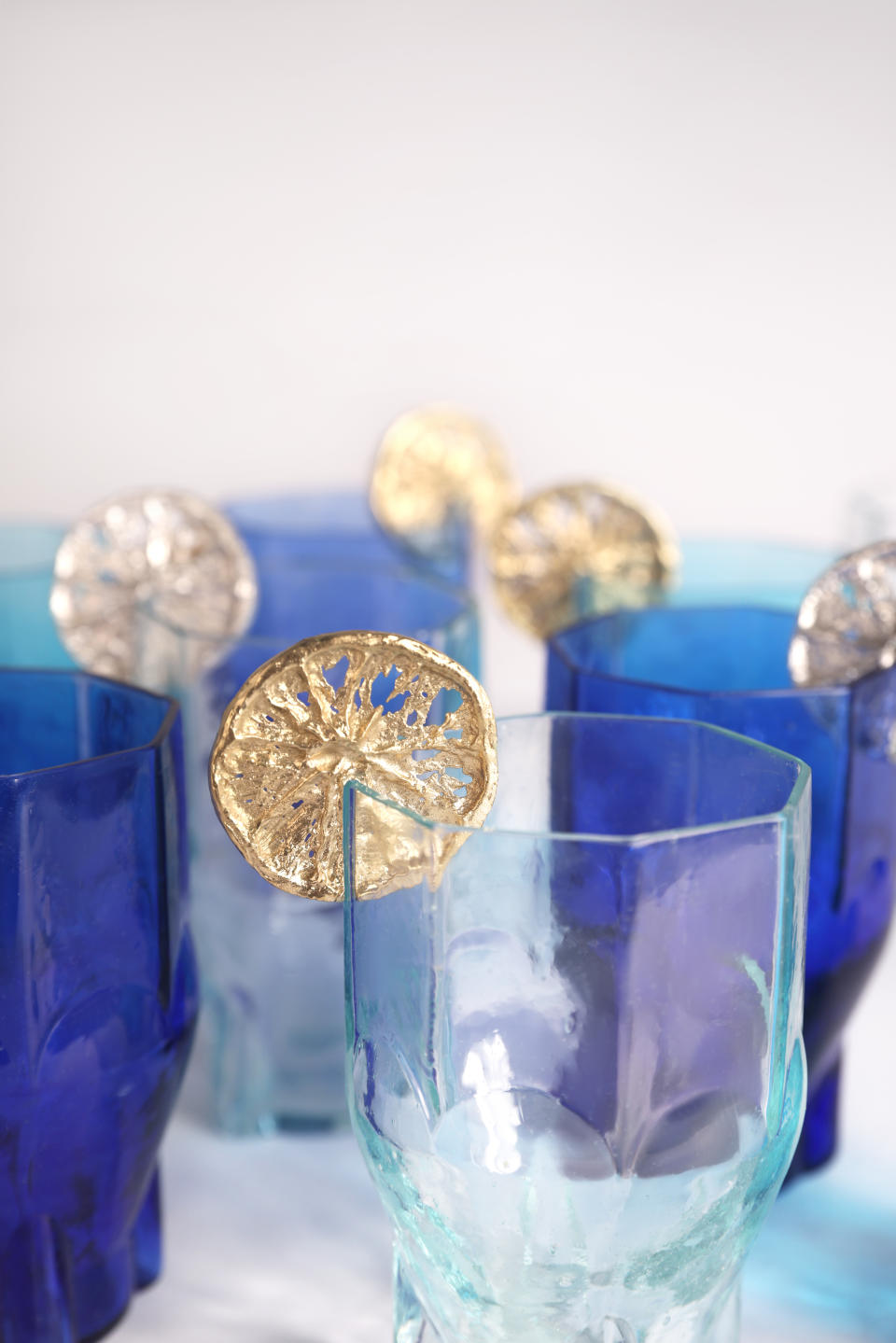Beit Collective is Lebanese Design’s Response to the Revolution

Emilie Skaff is an organizer and patriot.
The Lebanese-born Skaff founded Beit Collective, a design hub for Lebanese creatives, in 2021 as a means to make sense of the 17 October Revolution that took place in 2019 and to support her home country without just watching from the sidelines.
More from WWD
“It was impossible for me to stay in Europe and I just needed to go back. It’s so frustrating when nothing is happening around you but you know your whole country is turning upside down. So I packed my bags and went home,” says Skaff on Zoom during a work trip to Paris.
On Aug. 4, 2020, Skaff was 500 meters away from the explosion that killed 200 people in her city. She was underground at her local supermarket.
“I got out and I saw my whole city completely destroyed with dead people everywhere. I went home and my mom was covered in blood,” she recalls of the painful memory.
Skaff’s mom gave her a broom and told her it was time to start fixing the house without taking in any of the tragedy that had just happened that day.
“Self-pity doesn’t exist and I think that’s a nice symbol,” she says of Arabic stoicism that she has carried with her from place to place.

Skaff left Lebanon in 2011 to focus on her education abroad. She’s a University College London’s Bartlett School of Architecture graduate and continued into further education with an MA in decorative fine arts and design at the Sotheby’s Institute in London, which followed a short stint at the Hôtel de Crillon, where she worked on various projects during the Paris hotel’s renovation in 2017.
In 2018, she became a gallery assistant at London’s Galerie Kreo, which specializes in furniture and lighting design. The gallery hosted two of Virgil Abloh’s furniture collections, titled “Efflorescence,” in 2020, during Skaff’s tenure there.
“I know that I’m not a creative person. I don’t know how to draw and I was never great at architecture school. I wanted to do something that was close to design, but not designing itself,” Skaff says candidly.
Returning to Beirut after being away for seven years, Skaff found it a time to contemplate what she wanted to do and in the meantime ingrained herself into her surroundings by talking to people and socializing. That’s when she realized that no piece of furniture, architecture or fashion around her was homogenous.
“This personal touch of craftsmanship and design in Lebanon is so strong and there’s no equivalent for Ikea here. Everything is custom-made; if you want a table, you go to your najjar (Arabic for carpenter) and he does it for you in five days,” she says, emphasizing the attention to detail Arabs pay to their homes.

Leaving the gallery world behind was a culture shock for Skaff — she describes the environment as “structured and sterile,” one filled with rigid tailoring and cold personalities.
“It’s so not personal and you really need to detach yourself from your work because you really need to make an effort because you are your brand, which is the complete opposite in Lebanon,” she says of the shift in behavior, which surprised her because she was met with so much empathy and positivity.
“I wanted to bring this kind of sensitivity to the rest of the world,” she adds.
Skaff began scouring through her contact books for Lebanese designers whom she had met either in Lebanon or internationally to form Beit Collective — the word beit means home in Arabic.
In Skaff’s experience, the presentation of Middle Eastern art to the Western world has always been a difficult subject to navigate.
“When I’ve done Paris Design Week and others, it’s a bit colonialist because they’re just like, ‘Oh, I’m so sorry for you,’ and they buy out of pity,” she says, but that hasn’t stopped the incredible sales of the homeware made from recycled glass by Adam Nathaniel Furman.
Paris has become a hub away from home for Beit Collective due to financial reasons. “There’s insecurity with the banks (in Lebanon) and people are more reluctant to open bank accounts as there’s a lot of restrictions. This is why we need to have an international base because most of the payment gateways on the website don’t work when it’s Lebanese,” Skaff explains.

Despite Beit Collective catching momentum with the French via design weeks and trunk shows, it was sentimental to Skaff that she opened her first store in central Beirut because it’s what she calls home.
One of the first people she reached out to was Alexandra Hakim, a sustainable jewelry designer who Skaff has always advised to “go into product.”
Beit Collective’s roster now includes the likes of artist and architect Adam Nathaniel Furman; Karl Chucri and Rami Boushdid, the founders behind furniture and product design company Studio Caramel; illustrator Jonathan Blezard; sculptor and painter Kelly Halabi; problem-solving furniture designer Thalis Nicolaou, and interior and product designer Isabelle Tarazi.
“The main point of Beit is that Lebanese designers are amazing and we have the craft that’s exceptional and for me, it’s one of the best ones in the world and that’s what’s been lacking on the international scene,” says Skaff, whose goal is to move Lebanese design to join the big names such as David Raffoul and Nicolas Moussallem of David/Nicolas and Nada Debs.
Best of WWD

